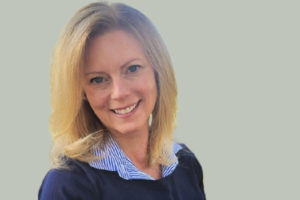
Denise Stranko, an attorney and environmental consultant with more than 20 years of experience in legislative action and policy, has joined Save the Sound as its vice president of programs succeeding Leah Lopez Schmalz, who took on the role of Save the Sound president Oct. 1. In her new role, based at Save the Sound”™s New Haven office, Stranko will direct and implement the organization”™s strategic plan and serve as a primary voice for Long Island Sound and all the communities in its watershed. She will also connect Save the Sound with new supporters, build networks, partner with the philanthropy team and serve as a member of the executive team.
With more than 20 years”™ experience advocating for strong environmental laws and policies at both the federal and state levels, Stranko”™s areas of expertise include administrative law, appropriations, agricultural issues and the Clean Air Act and Clean Water Act. In her most recent role as the federal executive director at the Chesapeake Bay Foundation, she led her team, in partnership with a large coalition, to lobby for the successful reauthorization of, and an increase in funding for, the EPA Chesapeake Bay Program.
After graduating from SUNY Albany, Stranko earned her Juris Doctorate at Emory University and started her legal career as a litigator in private practice, later following her interest in the environment to the role of counsel in the Department of the Interior”™s Office of Inspector General. She joined the Chesapeake Bay Foundation in 2001 as the Maryland state attorney and later served as the Maryland assistant director. She then launched an environmental consulting firm, taking on numerous nongovernmental organizations as clients, including Connecticut Fund for the Environment, one of Save the Sound”™s founding organizations. She returned to the Chesapeake Bay Foundation in 2017 as its federal legislative and policy manager.
For more than 50 years, Save the Sound has been protecting clean water, conserving lands, fighting climate change, and restoring Long Island Sound ecosystems through hands-on science and community collaboration, legislative advocacy, and legal action.






















